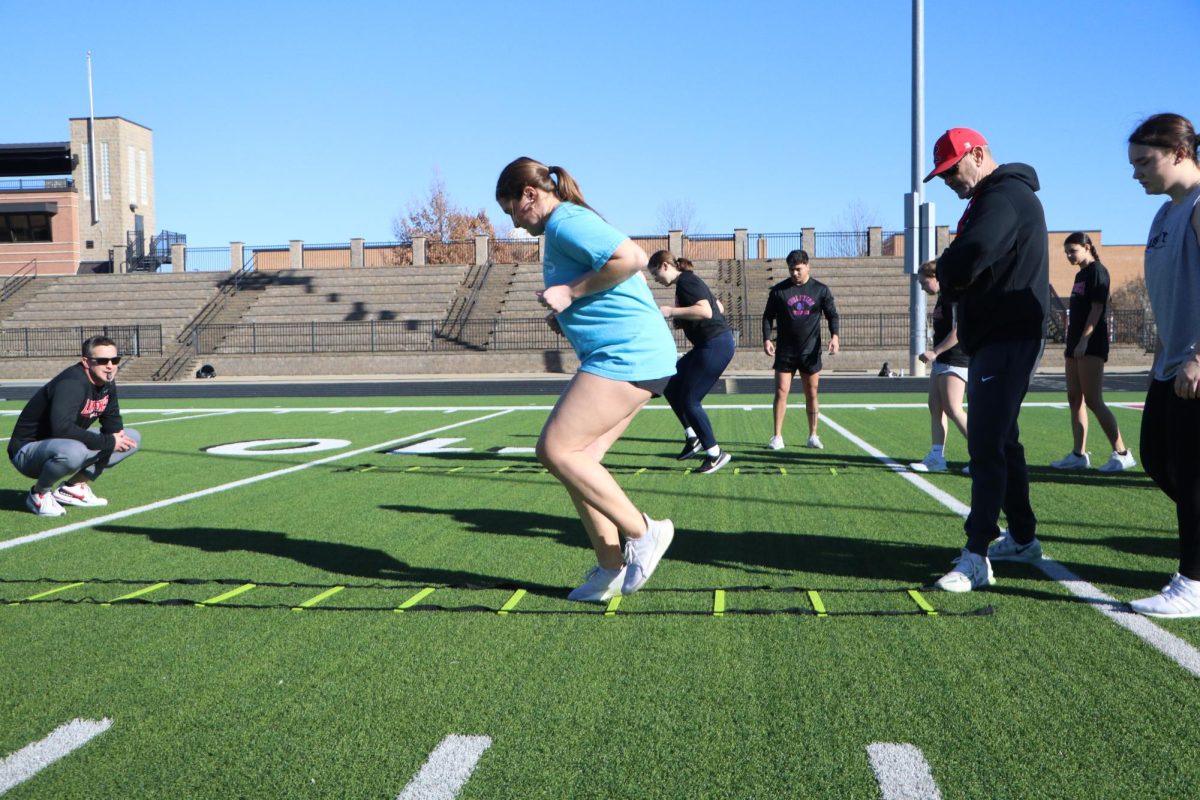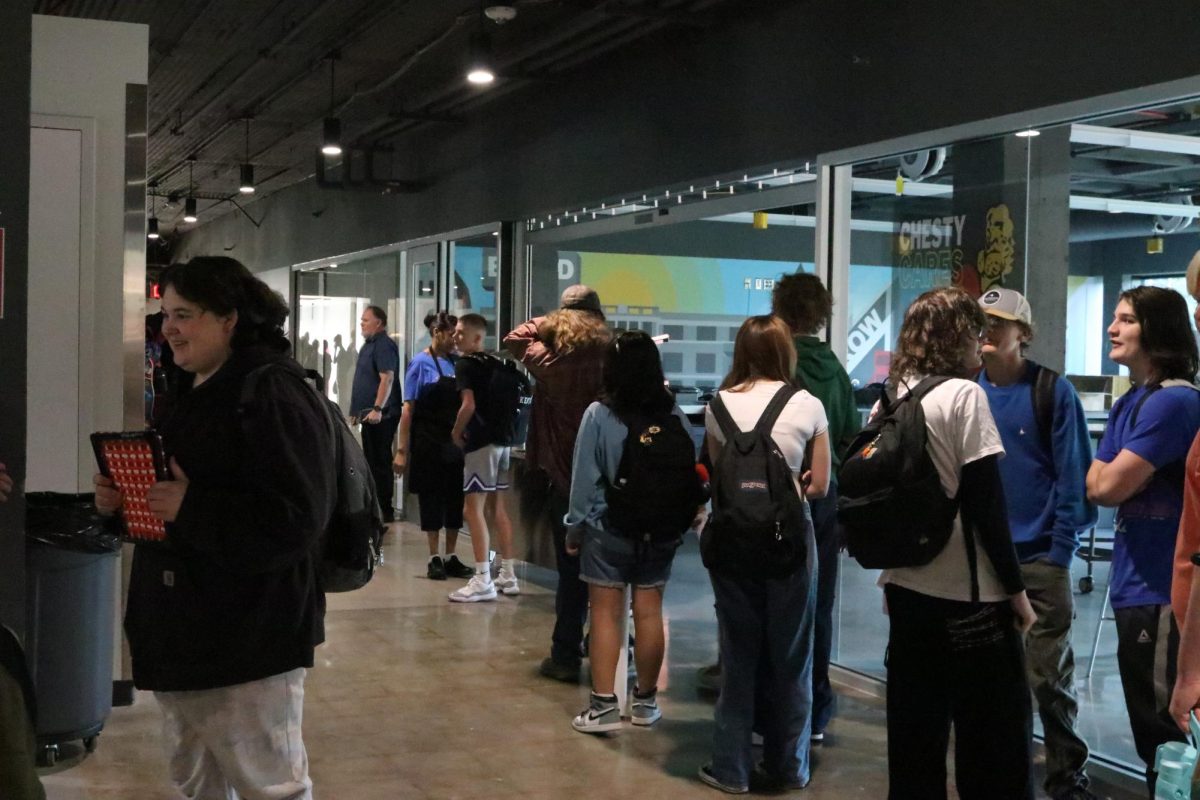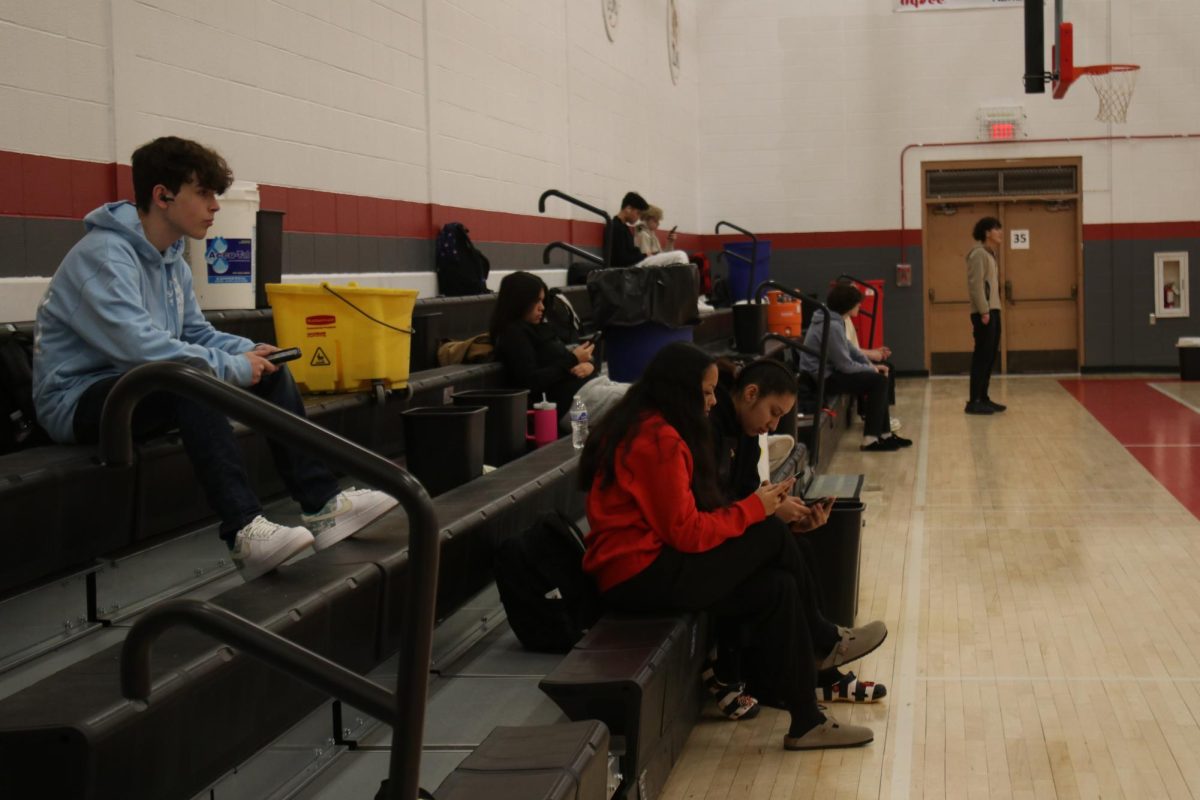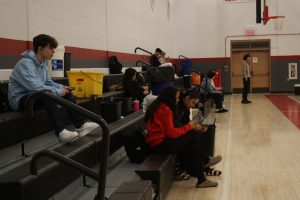Graphic by Michaela Durner
By Nia Rutledge
With adolescence being the time for raging hormones and puppy love, students should be equipped with knowledge pertaining to all aspects of sex.
It is impossible to walk through the hallways without seeing a couple holding hands, leaning against the lockers or mumbling “I love you.”
The average age for people to lose their virginity is 17. When I was in health class last year, I recall going over sex-related topics for a week, although the main focus was set over the course of three days.
Day one, Adam Green read from a slideshow that explained male genitalia, which only included inner anatomy. I asked Green, “Why do guys get morning wood?” My question caused the classroom to become a choir of laughter. I was serious and genuinely intrigued.
“I don’t think that anyone in the world knows the answer to that question,” Green said.
Day two, another slideshow included basic information on female genitalia. It also was limited to inner anatomy.
On day three Cori Green, Adam Green’s wife, came to talk about sexually transmitted infections. She said the only way to stay protected and healthy was to be abstinent, but also suggested the use of male condoms. We were not shown a condom or how to use it properly. We did not go over any other forms of contraception.
Since we were talking about sexually transmitted diseases for the majority of the time, I asked Cori Green “What is Blue Waffle?” This caused an uproar of snickers and students to glare back at me with disgusted looks. My fellow classmates may have found my question laughable, but I was serious and all ears. Cori Green could not answer my question.
“It’s a form of STD. I’m not sure what form though,” Cori Green said.
During our sex education section of health class, I can say that I was left knowing nothing more than what I already knew. And, the two questions I did have were left unanswered.
“I want to make sure the students receive the best and most accurate information available to the school district” said Kristie Adair, member of the Lawrence Board of Education.
The purpose of school is to prepare students for adulthood and push them to pursue higher knowledge. It seems that every other aspect of schooling lives up to the “best and most accurate information available” standard, yet sex education is in a gray area.
We tell our young adults abstinence is the only way to completely protect themselves. Yet, rarely do sex education classes address more than male condoms and abstinence as forms of contraception.
“I think that if you decided to have sex whether you have contraception or don’t, you’re probably going to still have sex,” Green said.
In 2011, there were 329,772 females ranging from ages 15-19 that became mothers in the United States. Teen pregnancy rate are lowering, but the information that students are taught in health classes should cover a wider array of topics.
Currently, the majority of the information students are taught in health classes is limited to the physical side of sex.
Health classes should address more of the personal side of sex.
“They learn about reproductive anatomy. They learn about sexually transmitted diseases. They learn about responsible sexual behavior,” Green said. “That’s pretty much the content.”
The curriculum should include information on sexual relations for people of all genders and sexes; what is and what is not consent; sexual safety in public situations, such as parties; and the difference between the right reasons and the wrong reasons to have sex.
Above all, students should be taught that sex is OK, that sex is healthy, there is no time limit for when you should swipe your V-Card, and that having sex or the amount of sex that someone has is not the determiner of self respect or cleanliness.
Talking about sex should not be a taboo topic. Considering that the majority of us are the result of sex in one way or another.
Teachers should not “Uh” after every word and avoid eye contact. Students should not nervously tap their feet and sit in a palpable silence.
Sex is a vast topic and has many sub categories. Sex education should be a class all to itself to ensure that students know about sex and all of it’s aspects in a way that a school week can not detail.















